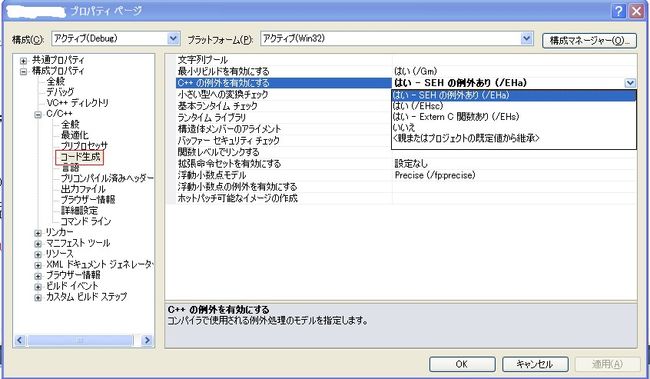- CX8836:小体积大功率升降压方案推荐(附Demo设计指南)
诚芯微科技
社交电子
CX8836是一颗同步四开关单向升降压控制器,在4.5V-40V宽输入电压范围内稳定工作,持续负载电流10A,能够在输入高于或低于输出电压时稳定调节输出电压,可适用于USBPD快充、车载充电器、HUB、汽车启停系统、工业PC电源等多种升降压应用场合,为大功率TYPE-CPD车载充电器提供最优解决方案。提供CX8836Demo测试、CX8836样品申请及CX8836方案开发技术支持。CX8836同升
- esp32开发快速入门 8 : MQTT 的快速入门,基于esp32实现MQTT通信
z755924843
ESP32开发快速入门服务器网络运维
MQTT介绍简介MQTT(MessageQueuingTelemetryTransport,消息队列遥测传输协议),是一种基于发布/订阅(publish/subscribe)模式的"轻量级"通讯协议,该协议构建于TCP/IP协议上,由IBM在1999年发布。MQTT最大优点在于,可以以极少的代码和有限的带宽,为连接远程设备提供实时可靠的消息服务。作为一种低开销、低带宽占用的即时通讯协议,使其在物联
- RabbitMQ生产者重复机制与确认机制
java炒饭小能手
java-rabbitmqrabbitmqjava
重复机制生产者发送消息时,出现了网络故障,导致与MQ的连接中断。为了解决这个问题,SpringAMQP提供的消息发送时的重试机制。即:当RabbitTemplate与MQ连接超时后,多次重试。需要修该发送端模块的application.yaml文件,添加下面的内容:spring:rabbitmq:connection-timeout:1s#设置MQ的连接超时时间template:retry:ena
- docker from指令的含义_多个FROM-含义
weixin_39722188
dockerfrom指令的含义
小编典典什么是基本图片?一组文件,加上EXPOSE端口ENTRYPOINT和CMD。您可以添加文件并基于该基础图像构建新图像,Dockerfile并以FROM指令开头:后面提到的图像FROM是新图像的“基础图像”。这是否意味着如果我neo4j/neo4j在FROM指令中声明,则在运行映像时,neo数据库将自动运行并且可在端口7474的容器中使用?仅当您不覆盖CMD和时ENTRYPOINT。但是图像
- 2021-06-07 Do What You Are Meant To Do
春生阁
Don’tgiveupontryingtofindbalanceinyourlife.Sticktoyourpriorities.Rememberwhat’smostimportanttoyouanddoeverythingyoucantoputyourselfinapositionwhereyoucanfocusonthosepriorities,ratherthanbeingpulledbyt
- vue2实现复制,粘贴功能
周bro
vue.jsjavascript前端
一、需求说明在项目中点击按钮复制某行文本是很常见的应用场景,在Vue项目中实现复制功能需要借助vue-clipboard2插件。二、代码实现1、安装vue-clipboard2依赖(出现错误的话,可以试试切换成淘宝镜像源npmconfigsetregistryhttps://registry.npm.taobao.org)npminstall--savevue-clipboard22、在main.
- SQLIntegrityConstraintViolationException解决方案
lu520zxcv
java
java.sql.SQLIntegrityConstraintViolationException:Duplicateentry'2'forkey't_pay.PRIMARY'当项目中出现上述异常表示,唯一的键已存在,再次向数据库插入相同唯一键的数据,此时,我们只需要将唯一键字段换一个既可。
- Python实现mysql命令行
xu-jssy
pythonmysqladb
一、源码importosimportpymysqldefsql_shell():password=input("EnterPassword:")#访问密码ifpassword.strip()!="yyds":print("Bye")return#清空控制台输出os.system("cls"ifos.name=="nt"else"clear")try:#连接到MySQL数据库conn=pymysql
- 安装 `privoxy` 将 Socks5 转换为 HTTP 代理
MonkeyKing.sun
网络
(base)shgbitai@shgbitai-C9X299-PGF:~/tools$curl-xhttp://127.0.0.1:1080https://registry-1.docker.io/v2/curl:(56)ProxyCONNECTaborted(base)shgbitai@shgbitai-C9X299-PGF:~/tools$curl-xhttps://127.0.0.1:108
- vue keep-alive
w_wx_x
作用: vue内置组件,能在组件切换过程中将状态保留在内存中,防止重复渲染DOM keep-alive是用在一个直属子组件被开关的情形,同时只有一个子组件在渲染,若有v-for则不会工作 注:keep-alive是一个抽象组件,自身不会渲染一个DOM元素,也不会出现在父组件链中//页面文件//路由exportdefaultnewRouter({routes:[{path:'/',name:'
- malloc和new的区别及联系
月夜星辉雪
数据结构
一.区别1.用法上malloc是一个函数,而new是C++一个操作符malloc需要手动计算开辟的空间大小,new后面只需跟上空间的类型,如果有多个对象,加上[]给个数即可malloc申请的空间不能初始化,而new可以malloc返回void*,需要强制类型转换,而new返回对应类型的指针malloc失败会返回空指针,需要手动检查;new失败抛出异常,要用catch捕获2.底层原理上申请自定义类型
- Java内存模型基础
2401_84002271
程序员java学习经验分享
1.2Java内存模型的抽象结构Java中所有的实例域、静态域和数组元素都存储在堆内存中,堆内存在线程之间共享(文章中用“共享变量”指代)。局部变量(LocalVariables)、方法定义参数(FormalMethodParameters)和异常处理器参数(ExceptionHandlerParameters)不会在线程之间共享,它们不会存在内存可见性问题,因此也不受内存模型的影响。Java线程
- 作品设计
等你的晚安Z
作品名称:《光影》作品观念:万物皆有裂痕,那是光照进来的地方创作过程:1.地点:楼道、书桌2.时间:中午3.手法:运用手机拍摄加后期加工4.理念:第一张图以楼道为背景,左边灯的开关与照进来的阳光相对应,代表白天有阳光照耀,夜晚也有灯光的照亮,表明只要积极面对生活,内心将不会有黑暗。第二张图以书为主体,“人间失格”、枯叶、光影相结合,表明光阴似箭、时光流逝。作品:
- 随摘
桔桔岛
Oneshouldcaremoreaboutone'sowngrowthinsteadofothers.Toliveahappylife,oneshouldalwaystryeveryefforttominimizeregretsinlife.比起时刻注视着他人,多关注自身的成长,尽自己的一切努力让生活少点遗憾,才能过上快意人生。Whenoneshiftstheirfocusfromotherst
- 电路故障
lxy_568f
妈妈家上周突然厨房卫生间没有电了。请了个电工来看,看了后说空气开关坏了,先换了一个空气开关。还是不好,又说那是里面的线路老化断了。如果要恢复,只能接明线过去。费用厨房一千,如果卫生间也要接,价格另议。又说不还也要收上门费300妈妈觉得这个电工收费太贵,而且接明线太难看了,就没有答应下来做,先用接线板对付着。电工收了上门费,施施然走了。他肯定想用接线板肯定是不方便的,早晚还是要投降找他。我劝妈妈算了
- Certificate has expired(npm 安装strapi)
窥见漫天星光-莹
npmstrapi
报错信息解决方法1、清空缓存,有时,损坏的缓存会导致连接问题npmcacheclean--force2、切换到淘宝镜像源的npm注册表npmconfigsetregistryhttps://registry.npmmirror.com/执行这两步后就可以执行自己想要安装的东西了,我是在执行npxcreate-strapi-appschedul命令创建strapi项目时报上述错误。仅供参考。当然再安
- 别用 npm config set registry 设置淘宝镜像了!!!
是阿臻
前端npm
常规写法npmconfigsetregistryhttps://registry.npmmirror.com我相信大部分人都会用这个命令来切换淘宝镜像。我之前也是,我有一个问题那就是我每当想切换镜像的时候都会搜一下淘宝npm镜像。因为我大部分时候都会忘记这个命令是什么样子的。大宝贝nrm自动我发现了nrm,妈妈再也不会为我切换镜像担心了。npminrm-g安装好这个大宝贝,然后执行nrmls,你就
- 小程序开关组件
phoebe_l_
小程序
前提是vant组件库不太好改,干脆就手写了一个{{leftText}}{{rightText}}import{ref,computed}from'vue';constprops=defineProps({leftText:{type:String,default:''},rightText:{type:String,default:''}});constisReverseOrder=ref(tru
- JavaScript 基础 - 第15天
+码农快讯+
JavaScript学习笔记javascript前端开发语言
文章目录JavaScript基础-第15天深浅拷贝浅拷贝深拷贝通过JSON序列化实现js库lodash实现深拷贝通过递归实现深拷贝异常处理throwtry...catchdebugger处理this改变thiscallapplybindthis指向性能优化防抖(debounce)手写防抖函数节流(throttle)手写节流函数JavaScript基础-第15天深浅拷贝浅拷贝浅拷贝:把对象拷贝给一个
- 切换淘宝最新镜像源npm详细讲解
程序员小羊!
杂文npm前端node.js
大家好,我是程序员小羊!前言:在中国大陆,npm(NodePackageManager)的默认源由于网络限制,速度可能较慢。为了解决这个问题,淘宝提供了一个镜像源,它同步了npm的官方仓库,并显著提升了访问速度。切换到淘宝的镜像源可以加快npm包的下载速度。下面是详细的切换步骤及相关说明。1.查看当前npm源在更改npm源之前,查看当前npm使用的源地址:npmconfiggetregistry默
- Java并发编程-AQS详解及案例实战(上篇)
猿与禅
Java技术栈源码分析javaAQS并发编程原理
文章目录AQS概述AQS的核心概念AQS的工作原理AQS的灵活性使用场景使用指南使用示例AQS的本质:为啥叫做异步队列同步器AQS的核心机制“异步队列”的含义“同步器”的含义总结加锁失败的时候如何借助AQS异步入队阻塞等待AQS的锁队列加锁失败时的处理流程异步入队的机制总结ReentractLock如何设置公平锁策略以及原理设置公平锁策略公平锁的运作原理尝试获取锁释放锁性能与公平性的权衡tryLo
- rsync exited with code 255.Load key “...“: invalid format Permission denied, please try again.
沧州刺史
后端服务器运维githubactionslinuxssh
在配置githubactions自动部署前端项目到服务器上时,登录服务器使用的是秘钥登录。出现报错:[general]GITHUB_WORKSPACE:/home/runner/work/clogin-frontend/clogin-frontend[SSH]Creating/home/runner/.sshdirin/home/runner/work/clogin-frontend/clogin
- 【Java实战】使用自定义注解实现参数校验详解
.猫的树
【Java实战】系列java自定义注解参数校验
文章目录前言一、Java注解简介二、启用注解校验1.启用注解2.注解@Valid和@Validated2.1@Valid级联校验2.2@Validated高级使用三、自定义注解1.统一异常处理2.编写注解2.1自定义校验2.2多参数校验2.3列表校验总结前言由于实际开发中遇到大量相同的条件参数验证,不想写重复代码及让代码看起来更加优雅简洁,所以决定使用自定义注解进行参数校验一、Java注解简介Ja
- 2019-05-10:每日英语打卡,文章精读
未名吾梦
图片发自AppFurthermore,itisobviousthatthestrengthofacountry’seconomyisdirectlyboundupwiththeefficiencyofitsagricultureandindustry,andthatthisinturnrestsupontheeffortsofscientistsandtechnologistsofallkinds
- Jetpack LiveData源码分析
xiangxiongfly915
#AndroidJetpack系列JetpackLiveData源码分析
文章目录JetpackLiveData源码分析前提源码分析注册订阅流程LiveData#observe()LifecycleRegistry#addObserver()ObserverWithState#dispatchEvent()LiveData#removeObserver()LiveData$LifecycleBoundObserver类LifecycleBoundObserver#sho
- SQL Server中使用异常处理调试存储过程
weixin_30583563
数据库c#
异常处理被普遍认为是T-SQL脚本编程中的最弱的方面。幸运的是,这一点在SQLServer2005中得到了改变,因为SQLServer2005支持结构化异常处理。本文首先关注新特性“TRY……CATCH”的基本构成,然后在SQLServer2000和SQLServer2005中对照着看一些T-SQL的例子,这些例子中使用事务代码故意制造了一些违反约束限制的情况。将来的文章会继续探讨这一主题。在SQ
- qiankun 结合 vue3, 小白快速上手体验
陈y_d
vue.js前端javascript
一、主应用改造首先需要维护一份微应用列表,里面包含了微应用的名称、入口和生效规则,若需要给子应用传递内容,可以在props传入对应的内容//app.jsconstapps=[{name:'micro-vue-app3',entry:'//localhost:3013',container:'#micro-vue-app3',activeRule:'/micro-vue3-app3',props:{
- object cannot be interpreted as an integer
Xi Zi
这个错误消息的意思是:无法将对象解释为整数。通常情况下,这个错误是由于尝试将一个非整数类型的对象转换为整数类型而引起的。例如,你可能尝试将一个字符串转换为整数,但是字符串中包含了非数字字符,导致无法转换。解决这个错误的方法是:确保将正确类型的对象传递给转换函数。例如,如果要将一个字符串转换为整数,确保字符串中只包含数字。使用适当的异常处理机制来捕获并处理转换失败的情况。例如,你可以使用try-ex
- webpack怎么配置单页面或者多页面项目?
镜中的女孩-potato
webpack前端node.js
单页直接在entry中指定单页面的入口文件即可,对于多页面来说,如果页面之间有依赖关系可以考虑将entry的值改成一个数组,数组中的每一项是入口文件的地址,并且通过dependOn配置多个入口的依赖关系,一般的,我们也可以直接在entry中配置多个入口文件的键值对1、单页面举个例子=>你有这样一个项目架构├──config│├──webpack.config.js//webpack配置文件├──s
- 4G MQTT网关在物联网应用中的优势-天拓四方
北京天拓四方
边缘计算iot物联网其他
随着物联网(IoT)技术的飞速发展,各种设备和系统之间的互联互通变得日益重要。MQTT(MessageQueuingTelemetryTransport)作为一种轻量级的发布/订阅消息传输协议,因其高效、可靠、简单的特性,在物联网领域得到了广泛的应用。而4GMQTT网关,作为连接物联网设备和MQTT服务器的桥梁,其在物联网应用中的作用愈发凸显。本文将探讨4GMQTT网关在物联网应用中的优势。4GM
- java线程Thread和Runnable区别和联系
zx_code
javajvmthread多线程Runnable
我们都晓得java实现线程2种方式,一个是继承Thread,另一个是实现Runnable。
模拟窗口买票,第一例子继承thread,代码如下
package thread;
public class ThreadTest {
public static void main(String[] args) {
Thread1 t1 = new Thread1(
- 【转】JSON与XML的区别比较
丁_新
jsonxml
1.定义介绍
(1).XML定义
扩展标记语言 (Extensible Markup Language, XML) ,用于标记电子文件使其具有结构性的标记语言,可以用来标记数据、定义数据类型,是一种允许用户对自己的标记语言进行定义的源语言。 XML使用DTD(document type definition)文档类型定义来组织数据;格式统一,跨平台和语言,早已成为业界公认的标准。
XML是标
- c++ 实现五种基础的排序算法
CrazyMizzz
C++c算法
#include<iostream>
using namespace std;
//辅助函数,交换两数之值
template<class T>
void mySwap(T &x, T &y){
T temp = x;
x = y;
y = temp;
}
const int size = 10;
//一、用直接插入排
- 我的软件
麦田的设计者
我的软件音乐类娱乐放松
这是我写的一款app软件,耗时三个月,是一个根据央视节目开门大吉改变的,提供音调,猜歌曲名。1、手机拥有者在android手机市场下载本APP,同意权限,安装到手机上。2、游客初次进入时会有引导页面提醒用户注册。(同时软件自动播放背景音乐)。3、用户登录到主页后,会有五个模块。a、点击不胫而走,用户得到开门大吉首页部分新闻,点击进入有新闻详情。b、
- linux awk命令详解
被触发
linux awk
awk是行处理器: 相比较屏幕处理的优点,在处理庞大文件时不会出现内存溢出或是处理缓慢的问题,通常用来格式化文本信息
awk处理过程: 依次对每一行进行处理,然后输出
awk命令形式:
awk [-F|-f|-v] ‘BEGIN{} //{command1; command2} END{}’ file
[-F|-f|-v]大参数,-F指定分隔符,-f调用脚本,-v定义变量 var=val
- 各种语言比较
_wy_
编程语言
Java Ruby PHP 擅长领域
- oracle 中数据类型为clob的编辑
知了ing
oracle clob
public void updateKpiStatus(String kpiStatus,String taskId){
Connection dbc=null;
Statement stmt=null;
PreparedStatement ps=null;
try {
dbc = new DBConn().getNewConnection();
//stmt = db
- 分布式服务框架 Zookeeper -- 管理分布式环境中的数据
矮蛋蛋
zookeeper
原文地址:
http://www.ibm.com/developerworks/cn/opensource/os-cn-zookeeper/
安装和配置详解
本文介绍的 Zookeeper 是以 3.2.2 这个稳定版本为基础,最新的版本可以通过官网 http://hadoop.apache.org/zookeeper/来获取,Zookeeper 的安装非常简单,下面将从单机模式和集群模式两
- tomcat数据源
alafqq
tomcat
数据库
JNDI(Java Naming and Directory Interface,Java命名和目录接口)是一组在Java应用中访问命名和目录服务的API。
没有使用JNDI时我用要这样连接数据库:
03. Class.forName("com.mysql.jdbc.Driver");
04. conn
- 遍历的方法
百合不是茶
遍历
遍历
在java的泛
- linux查看硬件信息的命令
bijian1013
linux
linux查看硬件信息的命令
一.查看CPU:
cat /proc/cpuinfo
二.查看内存:
free
三.查看硬盘:
df
linux下查看硬件信息
1、lspci 列出所有PCI 设备;
lspci - list all PCI devices:列出机器中的PCI设备(声卡、显卡、Modem、网卡、USB、主板集成设备也能
- java常见的ClassNotFoundException
bijian1013
java
1.java.lang.ClassNotFoundException: org.apache.commons.logging.LogFactory 添加包common-logging.jar2.java.lang.ClassNotFoundException: javax.transaction.Synchronization
- 【Gson五】日期对象的序列化和反序列化
bit1129
反序列化
对日期类型的数据进行序列化和反序列化时,需要考虑如下问题:
1. 序列化时,Date对象序列化的字符串日期格式如何
2. 反序列化时,把日期字符串序列化为Date对象,也需要考虑日期格式问题
3. Date A -> str -> Date B,A和B对象是否equals
默认序列化和反序列化
import com
- 【Spark八十六】Spark Streaming之DStream vs. InputDStream
bit1129
Stream
1. DStream的类说明文档:
/**
* A Discretized Stream (DStream), the basic abstraction in Spark Streaming, is a continuous
* sequence of RDDs (of the same type) representing a continuous st
- 通过nginx获取header信息
ronin47
nginx header
1. 提取整个的Cookies内容到一个变量,然后可以在需要时引用,比如记录到日志里面,
if ( $http_cookie ~* "(.*)$") {
set $all_cookie $1;
}
变量$all_cookie就获得了cookie的值,可以用于运算了
- java-65.输入数字n,按顺序输出从1最大的n位10进制数。比如输入3,则输出1、2、3一直到最大的3位数即999
bylijinnan
java
参考了网上的http://blog.csdn.net/peasking_dd/article/details/6342984
写了个java版的:
public class Print_1_To_NDigit {
/**
* Q65.输入数字n,按顺序输出从1最大的n位10进制数。比如输入3,则输出1、2、3一直到最大的3位数即999
* 1.使用字符串
- Netty源码学习-ReplayingDecoder
bylijinnan
javanetty
ReplayingDecoder是FrameDecoder的子类,不熟悉FrameDecoder的,可以先看看
http://bylijinnan.iteye.com/blog/1982618
API说,ReplayingDecoder简化了操作,比如:
FrameDecoder在decode时,需要判断数据是否接收完全:
public class IntegerH
- js特殊字符过滤
cngolon
js特殊字符js特殊字符过滤
1.js中用正则表达式 过滤特殊字符, 校验所有输入域是否含有特殊符号function stripscript(s) { var pattern = new RegExp("[`~!@#$^&*()=|{}':;',\\[\\].<>/?~!@#¥……&*()——|{}【】‘;:”“'。,、?]"
- hibernate使用sql查询
ctrain
Hibernate
import java.util.Iterator;
import java.util.List;
import java.util.Map;
import org.hibernate.Hibernate;
import org.hibernate.SQLQuery;
import org.hibernate.Session;
import org.hibernate.Transa
- linux shell脚本中切换用户执行命令方法
daizj
linuxshell命令切换用户
经常在写shell脚本时,会碰到要以另外一个用户来执行相关命令,其方法简单记下:
1、执行单个命令:su - user -c "command"
如:下面命令是以test用户在/data目录下创建test123目录
[root@slave19 /data]# su - test -c "mkdir /data/test123"
- 好的代码里只要一个 return 语句
dcj3sjt126com
return
别再这样写了:public boolean foo() { if (true) { return true; } else { return false;
- Android动画效果学习
dcj3sjt126com
android
1、透明动画效果
方法一:代码实现
public View onCreateView(LayoutInflater inflater, ViewGroup container, Bundle savedInstanceState)
{
View rootView = inflater.inflate(R.layout.fragment_main, container, fals
- linux复习笔记之bash shell (4)管道命令
eksliang
linux管道命令汇总linux管道命令linux常用管道命令
转载请出自出处:
http://eksliang.iteye.com/blog/2105461
bash命令执行的完毕以后,通常这个命令都会有返回结果,怎么对这个返回的结果做一些操作呢?那就得用管道命令‘|’。
上面那段话,简单说了下管道命令的作用,那什么事管道命令呢?
答:非常的经典的一句话,记住了,何为管
- Android系统中自定义按键的短按、双击、长按事件
gqdy365
android
在项目中碰到这样的问题:
由于系统中的按键在底层做了重新定义或者新增了按键,此时需要在APP层对按键事件(keyevent)做分解处理,模拟Android系统做法,把keyevent分解成:
1、单击事件:就是普通key的单击;
2、双击事件:500ms内同一按键单击两次;
3、长按事件:同一按键长按超过1000ms(系统中长按事件为500ms);
4、组合按键:两个以上按键同时按住;
- asp.net获取站点根目录下子目录的名称
hvt
.netC#asp.nethovertreeWeb Forms
使用Visual Studio建立一个.aspx文件(Web Forms),例如hovertree.aspx,在页面上加入一个ListBox代码如下:
<asp:ListBox runat="server" ID="lbKeleyiFolder" />
那么在页面上显示根目录子文件夹的代码如下:
string[] m_sub
- Eclipse程序员要掌握的常用快捷键
justjavac
javaeclipse快捷键ide
判断一个人的编程水平,就看他用键盘多,还是鼠标多。用键盘一是为了输入代码(当然了,也包括注释),再有就是熟练使用快捷键。 曾有人在豆瓣评
《卓有成效的程序员》:“人有多大懒,才有多大闲”。之前我整理了一个
程序员图书列表,目的也就是通过读书,让程序员变懒。 写道 程序员作为特殊的群体,有的人可以这么懒,懒到事情都交给机器去做,而有的人又可
- c++编程随记
lx.asymmetric
C++笔记
为了字体更好看,改变了格式……
&&运算符:
#include<iostream>
using namespace std;
int main(){
int a=-1,b=4,k;
k=(++a<0)&&!(b--
- linux标准IO缓冲机制研究
音频数据
linux
一、什么是缓存I/O(Buffered I/O)缓存I/O又被称作标准I/O,大多数文件系统默认I/O操作都是缓存I/O。在Linux的缓存I/O机制中,操作系统会将I/O的数据缓存在文件系统的页缓存(page cache)中,也就是说,数据会先被拷贝到操作系统内核的缓冲区中,然后才会从操作系统内核的缓冲区拷贝到应用程序的地址空间。1.缓存I/O有以下优点:A.缓存I/O使用了操作系统内核缓冲区,
- 随想 生活
暗黑小菠萝
生活
其实账户之前就申请了,但是决定要自己更新一些东西看也是最近。从毕业到现在已经一年了。没有进步是假的,但是有多大的进步可能只有我自己知道。
毕业的时候班里12个女生,真正最后做到软件开发的只要两个包括我,PS:我不是说测试不好。当时因为考研完全放弃找工作,考研失败,我想这只是我的借口。那个时候才想到为什么大学的时候不能好好的学习技术,增强自己的实战能力,以至于后来找工作比较费劲。我
- 我认为POJO是一个错误的概念
windshome
javaPOJO编程J2EE设计
这篇内容其实没有经过太多的深思熟虑,只是个人一时的感觉。从个人风格上来讲,我倾向简单质朴的设计开发理念;从方法论上,我更加倾向自顶向下的设计;从做事情的目标上来看,我追求质量优先,更愿意使用较为保守和稳妥的理念和方法。
&
